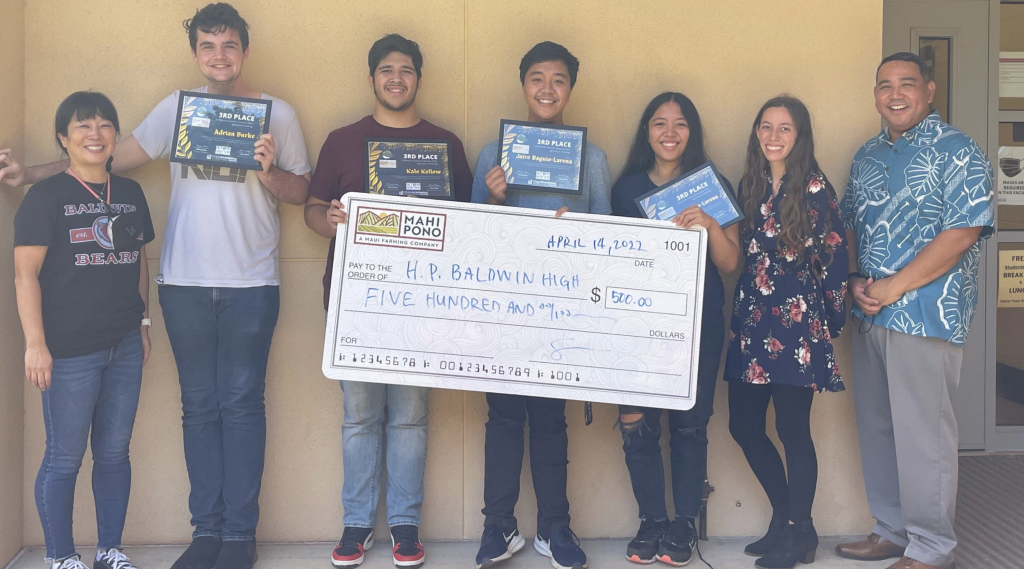Mahi Pono and the Maui Economic Development Board announced the winners of its 2022 STEMworks Solutions Agriculture Challenge. Students from King Kekaulike and Baldwin high schools secured top honors and were awarded cash prizes:
1st Place: King Kekaulike High School
- Edwin Barrett ($500)
2nd Place: King Kekaulike High School
- Liam Baush ($166.66)
- Jeremy DuPont ($166.66)
- Kaitlin Kitagawa ($166.66)
3rd Place: Baldwin High School
- Kalokuokamaile Kellow ($125)
- Janessa Baguio-Larena ($125)
- Jairo Baguio-Larena ($125)
- Adrian Burke ($125)

The 2022 STEMworks Solutions Agriculture Challenge was open to all Hawaiʻi high school and undergraduate students and presented them with a STEM-related problem to solve. More than 125 students entered the challenge, including students from Kauaʻi.
Students could participate as individuals or in teams of up to four with the winners receiving a paid internship with Mahi Pono and a $500 cash prize. For Mahi Pono’s challenge, students were asked to address the problem of overcoming the effects of wind on citrus trees, including damage, erosion, and dust production. Students were asked to come up with solutions for how to keep fruit trees upright with little to no windbreak, and how to mitigate dust clouds from lack of ground cover.

“These students are brilliant. The improvement and protection of Maui’s ecosystem is a top priority for Mahi Pono. These students represent Maui’s future, and including them in our operations and planning processes makes Maui stronger. We are fortunate to partner with MEDB and the Department of Education to put this STEM challenge together. It was challenging to narrow this down to one,” said Jayson Watts, director of external affairs and strategic initiatives with Mahi Pono.
“The STEMworks Solutions Challenges give students the ability to apply their knowledge to solve real world problems that many people in different industries, such as the Ag industry, face on a regular basis,” said Britney James, program specialist with Maui Economic Development Board. “This challenge allowed students to use the engineering design process in hands on activities and exposed them to multiple careers in the Ag sector giving them a new appreciation for people working in the Ag industry. I’m always blown away by the solutions that students submit. The future of Hawaii is bright with our youth and I think we can expect great things from these students.”
The eight students representing the top three placed teams have all been offered paid summer internships with Mahi Pono. As interns, they will implement their proposed solutions, and through research and trials will have the opportunity to improve their design.
